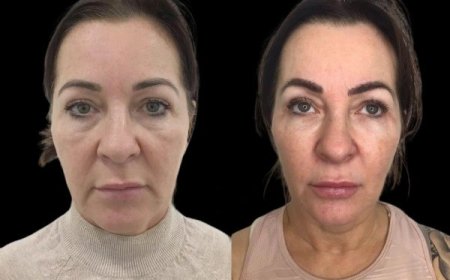Nizoral Shampoo Side Effects and Safety Tips

Nizoral shampoo is widely recognized for its effectiveness in treating dandruff, seborrheic dermatitis, and fungal scalp infections. Its active ingredient, ketoconazole, is a powerful antifungal agent that reduces scalp irritation, flakiness, and itchiness. While its generally safe and recommended by dermatologists, many users often overlook potential side effects or misuse it without understanding proper safety practices.
To get the most out of Nizoral shampoo and avoid adverse reactions, its important to know how it works, when to use it, and what safety measures should be followed.
Understanding How Nizoral Shampoo Works
Nizoral shampoo contains ketoconazole 1% or 2%, which disrupts the fungal cell membrane, effectively eliminating the yeast known as Malassezia. This fungus is often the root cause of dandruff and other scalp issues.
The shampoo also has anti-inflammatory properties, which help soothe irritated skin. Its available over the counter in 1% strength and by prescription in 2% strength. The stronger formulation is typically used under a doctors guidance for more severe scalp conditions.
Common Side Effects of Nizoral Shampoo
While Nizoral shampoo is effective, its not completely free from side effects. Most people tolerate it well, but some may experience mild to moderate reactions.
Dryness and Itching
One of the most frequently reported side effects is dry scalp or increased itching, especially during the first few uses. This can occur as the scalp adjusts to the active ingredients.
Irritation or Redness
Some individuals may experience scalp redness, tenderness, or burning sensations, particularly if they have sensitive skin or apply the shampoo too often. If these symptoms persist, it may be a sign of an allergic reaction.
Hair Texture Changes
Occasionally, users report changes in hair texture, such as dryness, stiffness, or tangling. This usually happens when the shampoo is used more frequently than recommended.
Shedding or Hair Loss
Although rare, increased hair shedding has been reported, usually as a temporary response to scalp treatment. In most cases, this shedding stops after a few weeks of continued use.
Allergic Reactions
In extremely rare cases, Nizoral shampoo may trigger an allergic skin reaction, such as rash, hives, or swelling of the face and lips. If you experience difficulty breathing or swelling after use, seek immediate medical attention.
Safety Tips for Using Nizoral Shampoo
To avoid side effects and maximize the benefits of Nizoral shampoo, follow these proven safety guidelines.
Use as Directed
Always follow the directions on the packaging or as provided by your dermatologist. Do not exceed the recommended frequency, which is typically two times per week unless otherwise instructed.
Apply Only to Affected Areas
Focus the shampoo only on the scalp or affected skin. Let it sit for 35 minutes before rinsing thoroughly. Avoid applying to broken or inflamed skin.
Avoid Contact with Eyes and Mouth
Nizoral shampoo is for external use only. If it accidentally gets into your eyes, rinse immediately with cold water. Do not ingest the product.
Moisturize After Use
Since it may dry out your scalp, consider using a light, non-comedogenic moisturizer or hair conditioner after rinsing. This can help restore balance and improve hair texture.
Perform a Patch Test First
If youre using Nizoral shampoo for the first time, apply a small amount to a patch of skin behind your ear and wait 24 hours. If you experience itching or redness, consult a dermatologist before full use.
Keep Usage Consistent but Limited
Overuse of Nizoral shampoo can lead to resistance or irritation. Use it regularly but do not increase frequency without consulting a medical professional.
Who Should Avoid Using Nizoral Shampoo?
Although nizoral shampoo is safe for most people, it may not be suitable for everyone.
-
Pregnant or breastfeeding women should consult a healthcare provider before use.
-
Those with a known allergy to ketoconazole or other antifungals should avoid it.
-
People with open wounds or severe skin conditions should not apply it to damaged skin without medical advice.
-
Children under 12 years should use it only under pediatric supervision.
What to Do If Side Effects Appear?
If you experience any discomfort or unusual reaction after using nizoral shampoo:
-
Stop using the product immediately.
-
Rinse your scalp thoroughly with cold water.
-
Apply a gentle moisturizer or aloe vera gel to soothe irritation.
-
Contact a dermatologist if symptoms worsen or do not improve within a few days.
Early intervention is key to preventing complications from allergic or chemical reactions.
Expert Recommendations for Safe Usage
Dermatologists and skincare professionals recommend these best practices when using medicated shampoos like nizoral shampoo:
-
Limit usage to problem areas only instead of the whole scalp.
-
Combine with a gentle, sulfate-free shampoo on off-days.
-
Maintain a healthy scalp routine by using hydrating masks or oils once a week.
-
Rotate with non-medicated shampoos if long-term usage is needed.
Natural Alternatives to Consider
If you prefer a more natural approach or experience frequent side effects, you might consider these alternatives:
-
Tea tree oil shampoos, which have antifungal properties
-
Apple cider vinegar rinses, known to balance scalp pH
-
Coal tar shampoos, for conditions like psoriasis or eczema
However, these options may not be as effective for fungal infections, so consult with a specialist before switching.
Long-Term Use: Is It Safe?
Most dermatologists agree that short-term or periodic use of nizoral shampoo is safe. However, continuous daily use beyond a few weeks may lead to scalp dryness or resistance. It's ideal to take breaks and evaluate your scalps condition regularly.
Some people may need maintenance therapyusing the shampoo once every 710 days to prevent recurrence. Always follow up with your dermatologist if you are planning long-term use.
Key Takeaways for Safe Scalp Health
Nizoral shampoo is a highly effective treatment for scalp conditions, but its benefits must be balanced with safety precautions. By understanding the possible side effects and using it responsibly, most users can enjoy healthy, dandruff-free hair without complications.
To get the best results:
-
Use it no more than 23 times per week
-
Avoid over-application or extended use
-
Keep the scalp moisturized and observe any changes
-
Consult a dermatologist if symptoms persist
By applying these tips, you can make the most of nizoral shampoo without risking your scalps health.



































